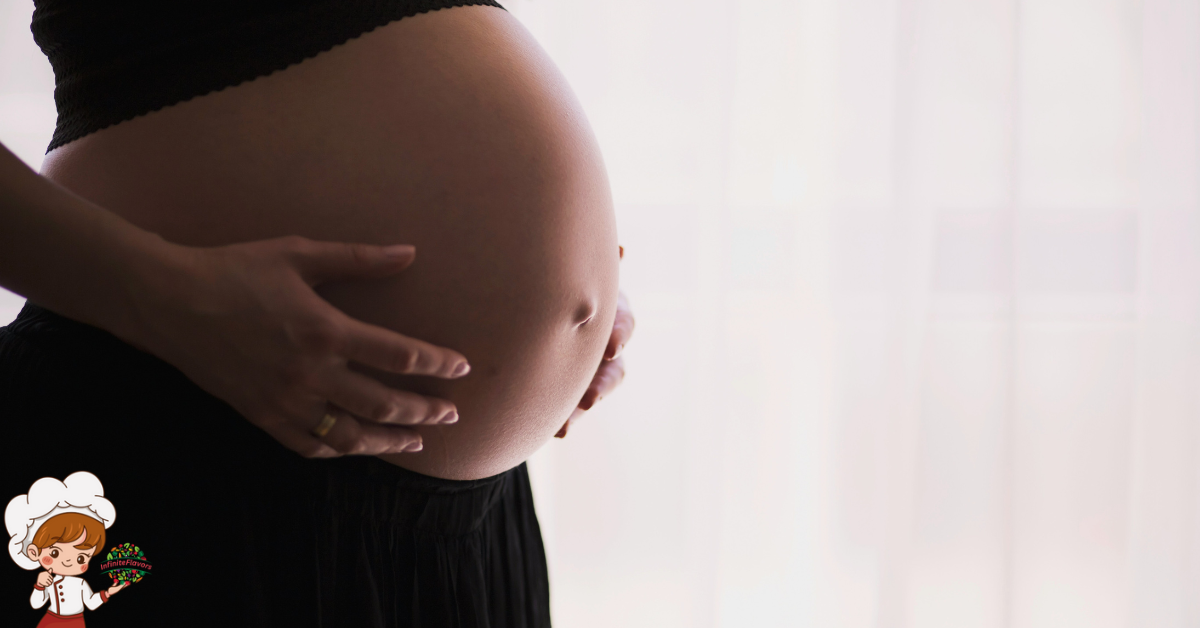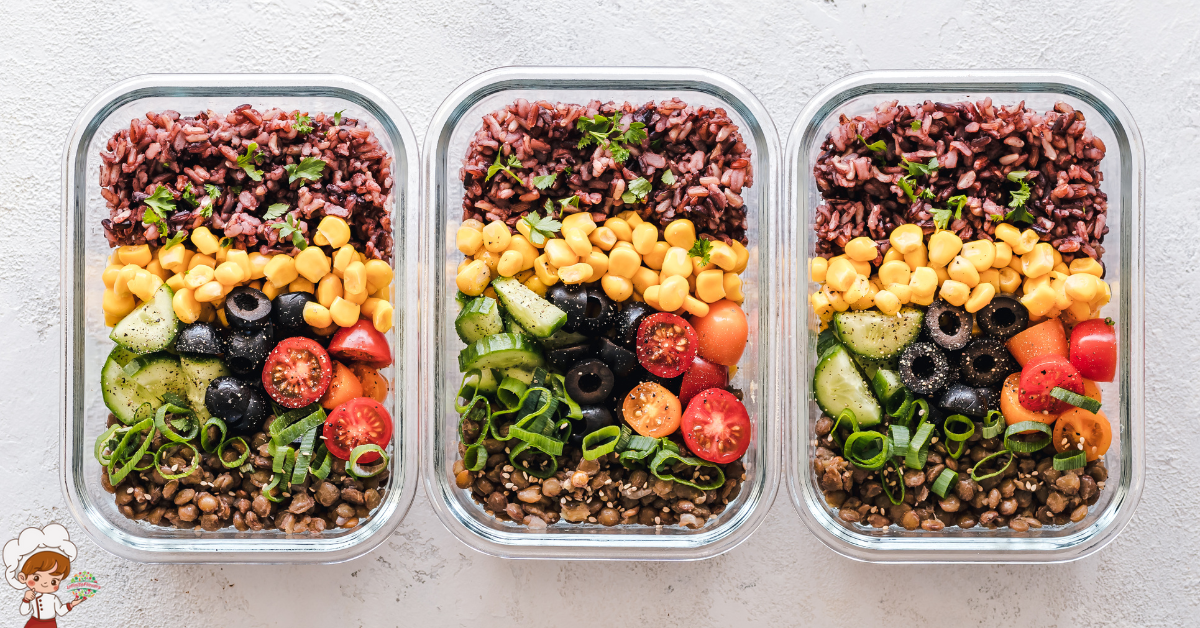Important Ketogenic Diet Principles During Pregnancy

Ketogenic Diet Principles During Pregnancy; As the saying goes, “You are what you eat.” When it comes to pregnancy, ensuring a healthy diet is vital for both you and your growing baby. You may have heard about the ketogenic diet and its potential benefits for weight loss and overall health. But what about following this low-carb, high-fat diet during pregnancy? Is it safe? Are there any considerations you should be aware of? In this discussion, we will explore the principles of the ketogenic diet during pregnancy, including its potential benefits, nutritional considerations, and possible risks. So, let’s dive into this topic and discover what the ketogenic diet has to offer for expectant mothers like yourself.
Benefits of the Ketogenic Diet During Pregnancy
The ketogenic diet during pregnancy can offer numerous benefits for both the mother and the developing baby. Pregnancy brings about specific nutritional needs, and the ketogenic diet can help meet those needs while also managing hormonal changes.
One of the main benefits of the ketogenic diet during pregnancy is its ability to provide essential nutrients for both the mother and the developing baby. The diet focuses on consuming healthy fats, moderate amounts of protein, and low levels of carbohydrates. This ensures that the mother receives an adequate intake of essential nutrients, such as vitamins and minerals, which are vital for the healthy growth and development of the baby.
Additionally, the ketogenic diet can help manage hormonal changes that occur during pregnancy. Hormonal fluctuations can lead to mood swings, increased appetite, and weight gain. By following a ketogenic diet, which is low in carbohydrates and sugar, blood sugar levels can be better regulated, preventing spikes and crashes that can contribute to mood swings. The diet also promotes a feeling of satiety, helping to control cravings and manage weight gain.
Furthermore, the ketogenic diet during pregnancy has been associated with a reduced risk of gestational diabetes. Gestational diabetes can have negative consequences for both the mother and the baby, including an increased risk of complications during pregnancy and delivery. By following a low-carbohydrate diet, the risk of developing gestational diabetes can be minimized, benefiting both the mother and the baby.
Nutritional Considerations for Pregnant Women on Keto
To ensure a healthy and well-rounded diet, pregnant women following the ketogenic diet should carefully consider their nutritional needs and make appropriate adjustments. Maintaining a balanced intake of essential nutrients is crucial during pregnancy to support the growth and development of the baby. Here are some important nutritional considerations for pregnant women on a ketogenic diet:
- Adequate Macronutrients: It is important to ensure that you are consuming enough macronutrients, including protein, healthy fats, and carbohydrates, to support both your own needs and the needs of your growing baby. Focus on including nutrient-dense foods like lean meats, fish, eggs, avocados, nuts, and seeds in your diet.
- Micronutrient Supplementation: While the ketogenic diet can provide many essential nutrients, it may be necessary to supplement certain micronutrients, such as folate, iron, and calcium. Consult with your healthcare provider to determine if any additional supplementation is needed to meet your nutritional needs.
- Safe Exercise: Regular physical activity is important during pregnancy, but it is crucial to choose safe exercises that are appropriate for your stage of pregnancy. Opt for low-impact exercises like walking, swimming, or prenatal yoga. Always consult with your healthcare provider before starting any exercise routine.
- Managing Cravings: Pregnancy can bring about intense cravings, and it can be challenging to stay on track with your ketogenic diet. Find healthier alternatives to satisfy your cravings, such as keto-friendly snacks or desserts. Incorporate a variety of flavors and textures into your meals to help curb cravings.
Maintaining a Healthy Weight During Pregnancy on Keto
To maintain a healthy weight during pregnancy on a ketogenic diet, it is important to focus on three key points. First, ensuring a safe calorie intake is crucial to meet the energy needs of both you and your growing baby. Second, making nutrient-rich food choices will provide the necessary vitamins and minerals for a healthy pregnancy. Lastly, following regular exercise guidelines can help support weight management and overall well-being.
Safe Calorie Intake
Maintaining a healthy weight during pregnancy on a ketogenic diet requires careful consideration of your calorie intake. It’s important to ensure you are consuming enough calories to support the growth and development of your baby, while also preventing nutrient deficiencies. Here are three key points to keep in mind when determining your safe calorie intake:
- Consult with your healthcare provider: It’s essential to work with your healthcare provider to determine the appropriate calorie intake for your specific needs during pregnancy. They can take into account factors such as your pre-pregnancy weight, activity level, and overall health to provide personalized guidance.
- Focus on nutrient-dense foods: While following a ketogenic diet, prioritize nutrient-dense foods to meet your calorie needs. Include a variety of vegetables, healthy fats, and sources of protein to ensure you’re getting essential vitamins and minerals.
- Monitor your weight gain: Regularly tracking your weight gain throughout pregnancy can help you ensure you’re on track. Sudden or excessive weight gain may indicate an imbalance in your calorie intake and should be discussed with your healthcare provider.
Nutrient-Rich Food Choices
Including nutrient-rich foods in your ketogenic diet during pregnancy is essential for maintaining a healthy weight. While following a ketogenic diet, it is important to focus on nutrient-rich meal options to ensure you are getting all the necessary vitamins and minerals for both you and your baby. Some nutrient-rich foods that you can incorporate into your ketogenic diet include leafy green vegetables, such as spinach and kale, which are high in folate and iron.
Avocados are another great choice, as they are rich in healthy fats and contain important nutrients like potassium and vitamin K. Additionally, incorporating protein-rich foods like eggs, lean meats, and fatty fish can help you maintain a balanced diet while providing essential nutrients for fetal development. Remember to consult with your healthcare provider to ensure your nutrient needs are being met during pregnancy.
Regular Exercise Guidelines
As you continue to prioritize nutrient-rich food choices, it is important to also incorporate regular exercise into your ketogenic diet during pregnancy to maintain a healthy weight. Here are some guidelines to help you stay active and safe:
- Consult your healthcare provider: Before starting any exercise routine, it is essential to consult with your healthcare provider to ensure that it is safe for you and your baby.
- Choose low-impact exercises: Opt for activities like walking, swimming, prenatal yoga, or stationary cycling that are gentle on your joints and minimize the risk of injury.
- Monitor your intensity: Aim for moderate-intensity exercise, where you can still hold a conversation without feeling out of breath. Avoid pushing yourself too hard or overheating.
Potential Risks and Concerns of the Ketogenic Diet During Pregnancy
During pregnancy, it is important to be aware of the potential risks and concerns associated with following a ketogenic diet. While the ketogenic diet may have benefits for managing gestational diabetes and addressing nutrient deficiencies, there are several factors to consider.
One potential risk of the ketogenic diet during pregnancy is the potential for nutrient deficiencies. The diet is low in carbohydrates, which are a major source of energy and important for fetal development. Restricting carbohydrates can lead to inadequate intake of essential nutrients such as folate, iron, and fiber. These nutrients are crucial for the growth and development of the baby.
Another concern is the potential impact on fetal growth. The ketogenic diet may limit the availability of glucose, the primary fuel for fetal development. This could potentially affect the baby’s growth and increase the risk of low birth weight.
Additionally, the ketogenic diet may increase the risk of ketosis in pregnant women. Ketosis occurs when the body starts burning fat for fuel instead of carbohydrates. While ketosis is a normal metabolic state on the ketogenic diet, it can be harmful during pregnancy. High levels of ketones in the blood can lead to complications such as ketoacidosis, which is a potentially life-threatening condition.
It is also important to note that the long-term effects of following a ketogenic diet during pregnancy are not well understood. More research is needed to determine the potential risks and benefits.
Adjusting Macronutrient Ratios for Pregnancy on Keto
When following a ketogenic diet during pregnancy, it is crucial to adjust your macronutrient ratios to ensure you are meeting your pregnancy-specific nutrient needs and promoting optimal fetal development. By focusing on consuming adequate amounts of protein, healthy fats, and a limited amount of carbohydrates, you can support the growth and development of your baby while maintaining the benefits of a ketogenic diet. It is important to work closely with a healthcare professional to ensure you are meeting your nutritional needs and to address any concerns or adjustments that may be necessary during this time.
Pregnancy-Specific Nutrient Needs
Pregnancy on a ketogenic diet requires adjusting macronutrient ratios to meet the specific nutrient needs of both the mother and the developing baby. During pregnancy, there are certain nutrient deficiencies that need to be addressed to support optimal fetal development and manage hormonal changes. Here are three important considerations for managing pregnancy-specific nutrient needs on a ketogenic diet:
- Folate: Folate is crucial for neural tube development in the baby. Include folate-rich foods like leafy greens, avocados, and broccoli in your diet.
- Iron: Iron is essential for the production of red blood cells and oxygen transport. Incorporate iron-rich foods such as lean meats, legumes, and dark chocolate into your meals.
- Calcium: Calcium is vital for the development of the baby’s bones and teeth. Include calcium-rich foods like dairy products, almonds, and leafy greens in your diet.
Ensuring Fetal Development
To ensure optimal fetal development while following a ketogenic diet during pregnancy, adjusting macronutrient ratios is essential. Fetal growth and development rely heavily on the nutrients obtained from the mother’s diet. The ketogenic diet, which is low in carbohydrates and high in fat, can provide the necessary nutrients for fetal development, but it requires careful adjustment to meet the specific needs of pregnancy.
Adequate protein intake is crucial for the development of fetal tissues, while sufficient fat consumption supports the growth of the baby’s brain and nervous system. Additionally, incorporating a variety of nutrient-dense foods, such as leafy greens, eggs, and avocados, can further enhance maternal well-being and contribute to fetal growth. It is important to work with a healthcare professional to ensure that macronutrient ratios are appropriately adjusted to support both maternal and fetal health during pregnancy on a ketogenic diet.
Meeting Nutrient Needs for Fetal Development on Keto
In order to support optimal fetal development while following a ketogenic diet, it is crucial to ensure you are meeting all of your nutrient needs. While the ketogenic diet may be low in carbohydrates, it is still possible to obtain the necessary nutrients for your baby’s growth and development. Here are three key nutrients that you should focus on when following a ketogenic diet during pregnancy:
- Folate: Folate plays a vital role in fetal development, particularly in the formation of the neural tube. It is important to consume foods rich in folate, such as leafy green vegetables, avocado, and liver. If needed, you can also consider taking a folate supplement to ensure you are meeting your daily requirements.
- Omega-3 fatty acids: These essential fats are crucial for brain development and overall growth of your baby. Sources of omega-3 fatty acids include fatty fish like salmon and sardines, as well as chia seeds and walnuts. Incorporating these foods into your ketogenic diet can help ensure you are getting an adequate intake of omega-3s.
- Calcium: Calcium is essential for the development of your baby’s bones and teeth. While dairy products are often restricted on a ketogenic diet, there are still plenty of keto-friendly sources of calcium, such as leafy greens, almonds, and sesame seeds. Additionally, consider using calcium-fortified products like almond milk or tofu to meet your calcium needs.
Managing Gestational Diabetes With a Ketogenic Diet
If you have gestational diabetes during pregnancy, managing your blood sugar levels is crucial for both your health and the health of your baby. The ketogenic diet can be a beneficial approach in managing gestational diabetes as it focuses on low-carbohydrate, high-fat foods that help stabilize blood sugar levels. By following a ketogenic diet, you can potentially reduce the need for medication and improve your overall pregnancy outcomes.
Ketogenic Diet Benefits
Managing gestational diabetes with a ketogenic diet can provide numerous benefits for pregnant women. Here are three reasons why incorporating a ketogenic diet can be advantageous during pregnancy:
- Blood sugar control: The ketogenic diet focuses on low carbohydrate intake, which helps regulate blood sugar levels. This can be particularly beneficial for women with gestational diabetes, as it helps prevent spikes in blood sugar and promotes stable glucose levels.
- Weight management: The ketogenic diet promotes weight loss by inducing a state of ketosis, where the body burns fat for fuel instead of carbohydrates. By maintaining a healthy weight during pregnancy, women can reduce their risk of complications such as preeclampsia and gestational hypertension.
- Improved insulin sensitivity: Following a ketogenic diet can enhance insulin sensitivity, making the body more efficient at using insulin to regulate blood sugar. This can be especially beneficial for women with gestational diabetes, as it helps to manage their condition effectively.
While the ketogenic diet has shown promising results in managing gestational diabetes, it’s important to consult with a healthcare professional before making any dietary changes, especially if you are breastfeeding. They can provide guidance on any potential restrictions and ensure that you and your baby are getting all the necessary nutrients.
Managing Blood Sugar Levels
Incorporating a ketogenic diet during pregnancy can effectively manage blood sugar levels for women with gestational diabetes. One of the benefits of following a ketogenic diet is that it helps in managing cravings, which can be particularly challenging for women with gestational diabetes. By reducing the intake of carbohydrates and focusing on consuming healthy fats and proteins, the ketogenic diet helps stabilize blood sugar levels and reduce the risk of spikes in glucose levels. This can prevent the onset of gestational diabetes or help manage it if it has already been diagnosed.
It is important to monitor glucose levels regularly while following a ketogenic diet to ensure that blood sugar levels remain within a healthy range. By doing so, women can successfully manage their gestational diabetes and promote a healthy pregnancy.
Ensuring Adequate Calorie Intake on the Ketogenic Diet During Pregnancy
To ensure a sufficient intake of calories while following the ketogenic diet during pregnancy, it is important to carefully plan and prioritize nutrient-dense foods. Here are three tips to help you ensure an adequate calorie intake while on the ketogenic diet:
- Choose calorie-dense foods: Opt for foods that are high in calories but still align with the principles of the ketogenic diet. Healthy fats, such as avocados, nuts, and seeds, are great choices as they provide a concentrated source of calories. Incorporate coconut oil, olive oil, and butter into your meals to increase calorie content without compromising ketosis.
- Prioritize protein: While the ketogenic diet is known for its high fat content, it’s essential to ensure an adequate protein intake during pregnancy. Protein is crucial for the growth and development of your baby. Include protein-rich foods such as eggs, poultry, fish, and lean meats in your meals. These will not only provide essential nutrients but also contribute to your overall calorie intake.
- Include low-carb vegetables: While calorie-dense foods are crucial, it’s equally important to incorporate low-carb vegetables into your diet. These vegetables provide essential vitamins, minerals, and fiber, which are beneficial for both you and your baby. Leafy greens, broccoli, cauliflower, and zucchini are excellent options that can be included in your meals without significantly impacting your carbohydrate intake.
Supplementation Recommendations for Pregnant Women on Keto
When following the ketogenic diet during pregnancy, it is important to consider supplementation recommendations to ensure the proper nutritional support for both you and your baby. While the ketogenic diet can provide many health benefits, it may also lead to nutrient deficiencies if not carefully planned. Therefore, it is crucial to focus on supplement safety and meet your micronutrient needs.
One key supplement to consider is prenatal vitamins. Prenatal vitamins are specially formulated to provide the necessary vitamins and minerals needed during pregnancy. Look for a prenatal vitamin that contains folic acid, iron, calcium, vitamin D, and omega-3 fatty acids. These nutrients are essential for the healthy development of your baby and can help prevent birth defects.
In addition to prenatal vitamins, you may also need to supplement certain micronutrients that are typically found in higher amounts in carbohydrates. For example, magnesium and potassium are important electrolytes that can become depleted on a ketogenic diet. Consider incorporating magnesium-rich foods like leafy greens, nuts, and seeds, or take a magnesium supplement if necessary. To meet your potassium needs, include foods like avocados, salmon, and spinach in your diet.
It is important to note that not all supplements are safe during pregnancy. Some supplements, such as herbal remedies or high-dose vitamins, may pose risks to you and your baby. Always consult with your healthcare provider before starting any new supplements to ensure they are safe and appropriate for your individual needs.
Tips for Navigating Food Cravings on the Ketogenic Diet While Pregnant
To navigate food cravings on the ketogenic diet while pregnant, it is important to have strategies in place that support your health and the health of your baby. Managing cravings can be challenging, but with the right approach, you can make healthy choices that align with your ketogenic lifestyle. Here are some tips to help you navigate those cravings and stay on track:
- Identify the root cause: Cravings can be triggered by various factors such as hormonal changes, nutrient deficiencies, or emotional stress. Take a moment to reflect on what might be causing your cravings. Are you truly hungry or is it an emotional craving? Understanding the root cause can help you make better choices.
- Opt for healthy alternatives: Instead of giving in to unhealthy cravings, choose keto-friendly options that satisfy your taste buds. For example, if you’re craving something sweet, try a handful of berries or a small piece of dark chocolate. If you’re craving something crunchy, opt for a handful of nuts or kale chips.
- Plan and prepare: Keep your pantry stocked with keto-friendly snacks and meals that you enjoy. Having healthy options readily available can help you resist the temptation of reaching for unhealthy choices. Consider meal prepping and packing snacks to take with you when you’re on the go.
Addressing Potential Nutrient Deficiencies on the Ketogenic Diet During Pregnancy
To ensure that you are addressing potential nutrient deficiencies while following a ketogenic diet during pregnancy, it is important to focus on prevention. This can be achieved through modifications to your diet that prioritize nutrient-dense foods and supplementation when necessary. By taking these steps, you can ensure optimal maternal health and support the healthy development of your baby.
Nutrient Deficiencies Prevention
Addressing potential nutrient deficiencies on the ketogenic diet during pregnancy requires careful monitoring and strategic planning to ensure optimal maternal and fetal health. Here are some tips to help you prevent nutrient deficiencies while following a ketogenic diet during pregnancy:
- Supplementation: Talk to your healthcare provider about appropriate supplements to support your nutritional needs during pregnancy. Key nutrients to consider include folate, iron, calcium, and omega-3 fatty acids.
- Managing food aversions on keto: Pregnancy can bring about food aversions, which can make it challenging to adhere to a strict ketogenic diet. It’s important to listen to your body and find alternative sources of essential nutrients. Include nutrient-dense, low-carb foods that you can tolerate, such as leafy greens, avocados, and lean proteins.
- Regular monitoring: Regularly check your nutrient levels through blood tests to ensure you’re meeting your nutritional requirements. This will help you identify any deficiencies early on and make necessary adjustments to your diet or supplementation.
Ketogenic Diet Modifications
As you navigate the ketogenic diet during pregnancy, it is crucial to make modifications that address potential nutrient deficiencies and support optimal maternal and fetal health. While the ketogenic diet can provide numerous benefits, it is important to ensure that you are still obtaining all the necessary nutrients for a healthy pregnancy. To manage potential nutrient deficiencies, consider incorporating a variety of nutrient-dense foods into your diet. This includes consuming a wide range of vegetables, especially leafy greens, which are rich in essential vitamins and minerals.
Additionally, include sources of healthy fats such as avocados, nuts, and seeds. To manage food cravings, opt for healthier alternatives that align with the ketogenic principles. For example, satisfy your sweet tooth with low-carb fruits like berries or indulge in a small portion of dark chocolate. By making these modifications, you can continue to follow the ketogenic diet safely and support both your health and the health of your baby.
Ensuring Maternal Health
To ensure your maternal health while following the ketogenic diet during pregnancy, it is essential to address potential nutrient deficiencies. Proper nutrition plays a crucial role in supporting your well-being and reducing the risk of pregnancy complications. Here are three key steps you can take to ensure adequate nutrient intake:
- Consult with a healthcare professional: Seek guidance from a healthcare provider who specializes in prenatal care and nutrition. They can help you determine the appropriate macronutrient ratios and recommend any necessary supplements.
- Focus on nutrient-dense foods: Prioritize foods rich in essential vitamins and minerals, such as leafy greens, low-carb vegetables, lean proteins, and healthy fats. This will help ensure you’re getting a wide range of nutrients to support your overall health.
- Regularly monitor nutrient levels: Consider regular blood tests to monitor your nutrient levels throughout pregnancy. This can help identify any deficiencies and guide adjustments to your diet or supplementation if needed.
Monitoring Ketone Levels During Pregnancy on Keto
Monitoring ketone levels during pregnancy on a ketogenic diet is essential for ensuring optimal maternal and fetal health. Managing ketosis is crucial to strike a balance between achieving the benefits of ketosis and avoiding potential risks. To monitor your ketone levels, you can use urine strips, blood ketone meters, or breath analyzers.
Urine strips are a convenient and affordable option for monitoring ketone levels. However, they only provide an estimation of ketone levels and may not be as accurate as blood ketone meters or breath analyzers.
Blood ketone meters are considered the gold standard for measuring ketone levels. They provide a precise measurement of beta-hydroxybutyrate (BHB) levels, the main ketone body produced during ketosis. The downside is that blood ketone meters can be more expensive and require pricking your finger to obtain a blood sample.
Breath analyzers measure acetone levels in your breath, which is a byproduct of ketosis. They are non-invasive and provide immediate results. However, breath analyzers may not be as accurate as blood ketone meters.
When monitoring your ketone levels, it’s important to consult with your healthcare provider for guidance on the target range. Generally, a moderate level of ketosis is recommended during pregnancy, with ketone levels ranging from 0.5 to 3.0 mmol/L. It’s crucial to avoid excessively high ketone levels, as this may be associated with adverse effects on fetal development.
Regularly monitoring your ketone levels during pregnancy on a ketogenic diet allows you to adjust your dietary choices and make any necessary modifications to ensure both you and your baby are receiving the appropriate nutrition and maintaining optimal health.
Consulting With Healthcare Professionals When Following a Ketogenic Diet While Pregnant
When following a ketogenic diet while pregnant, it is important to consult with healthcare professionals to ensure the safety and well-being of both you and your baby. Here are three reasons why consulting with healthcare professionals is crucial:
- Expert guidance: Healthcare professionals, such as doctors and registered dietitians, can provide valuable guidance and support throughout your pregnancy journey. They can help you understand the benefits and potential risks of following a ketogenic diet during pregnancy, as well as provide recommendations for adjusting macronutrient ratios to meet your pregnancy-specific nutrient needs.
- Nutritional considerations: Healthcare professionals can help you make informed decisions about maintaining a healthy weight and ensuring a safe calorie intake. They can guide you in making nutrient-rich food choices that support fetal development and manage gestational diabetes, if applicable. They can also provide supplementation recommendations to address any potential nutrient deficiencies that may arise due to the ketogenic diet.
- Maternal health monitoring: Healthcare professionals can help monitor your maternal health during pregnancy, including your blood sugar levels and overall well-being. They can ensure that you are consuming an adequate calorie intake to support both your and your baby’s nutritional needs. They can also provide guidance on managing food cravings and making appropriate ketogenic diet modifications, if necessary.
Meal Planning and Recipe Ideas for Pregnant Women on the Ketogenic Diet
For pregnant women following a ketogenic diet, meal planning and recipe ideas can help ensure a well-rounded and nutrient-rich diet. Planning your meals in advance can help you maintain a balanced intake of macronutrients and ensure you are getting all the necessary vitamins and minerals for a healthy pregnancy.
When it comes to meal planning, it’s important to focus on high-quality sources of protein, healthy fats, and low-carbohydrate vegetables. Incorporating a variety of foods will help ensure you are getting a wide range of nutrients. Aim for grass-fed or organic meats, such as beef, poultry, and pork. Include fatty fish like salmon and sardines for their omega-3 fatty acids, which are important for your baby’s brain development.
Don’t forget about healthy fats like avocados, coconut oil, and olive oil. These fats provide energy and support your baby’s growth and development. They also help you feel satisfied and prevent cravings. Low-carbohydrate vegetables, such as leafy greens, broccoli, cauliflower, and zucchini, should also be included in your meal plan to provide fiber, vitamins, and minerals.
Now, let’s talk about recipe ideas. Here are a few examples to get you started:
- Keto-friendly breakfast: Spinach, mushroom, and cheese omelet cooked in coconut oil.
- Lunch: Grilled chicken salad with mixed greens, avocado, cherry tomatoes, and olive oil dressing.
- Dinner: Baked salmon with lemon and dill, served with roasted asparagus and cauliflower rice.
- Snack: Celery sticks with almond butter or a handful of mixed nuts.
Remember to consult with your healthcare provider or a registered dietitian to ensure your meal plan meets your specific nutritional needs during pregnancy.
Transitioning off the Ketogenic Diet After Pregnancy
Once your pregnancy is over, you may be considering how to transition off the ketogenic diet. It’s important to remember that postpartum nutrition plays a crucial role in your recovery and overall well-being. Here are three steps to help you transition off the ketogenic diet after pregnancy:
- Gradual reintroduction of carbohydrates: Start by slowly increasing your carbohydrate intake. Choose nutrient-dense options such as fruits, vegetables, and whole grains. This gradual approach will give your body time to adjust and prevent any digestive discomfort.
- Focus on balanced meals: Shift your focus towards creating balanced meals that include a variety of macronutrients. Incorporate lean proteins, healthy fats, and carbohydrates into your meals to ensure you’re getting a well-rounded diet. This will provide your body with the necessary nutrients for recovery and breastfeeding if applicable.
- Listen to your body: Pay attention to how different foods make you feel. Every individual is unique, and what works for someone else may not work for you. Take note of any symptoms or reactions your body may have when reintroducing certain foods. This will help you identify any potential sensitivities or allergies and make adjustments accordingly.
Ketogenic Diet Principles During Pregnancy; Frequently Asked Questions
Can the Ketogenic Diet Help With Managing Morning Sickness During Pregnancy?
The ketogenic diet may help manage morning sickness during pregnancy by reducing carbohydrate intake and stabilizing blood sugar levels. This can potentially provide relief from nausea. However, it’s important to consult with a healthcare professional before making any dietary changes.
Are There Any Specific Foods or Nutrients That Pregnant Women on the Ketogenic Diet Should Prioritize?
During pregnancy, prioritize high protein sources like lean meats and fish on the ketogenic diet. Also, make sure to focus on essential vitamins and minerals by including foods like leafy greens, nuts, and avocados.
Is It Safe to Continue the Ketogenic Diet During All Trimesters of Pregnancy?
During all trimesters of pregnancy, it is important to consider safety concerns before continuing the ketogenic diet. While potential benefits have been reported, consult with a healthcare professional to ensure the diet meets your specific needs.
Can the Ketogenic Diet Help Prevent or Manage Gestational Diabetes?
The ketogenic diet can help prevent and manage gestational diabetes. By reducing carbohydrates and increasing healthy fats, it helps regulate blood sugar levels and supports overall maternal and fetal health during pregnancy.
How Can Pregnant Women on the Ketogenic Diet Ensure They Are Getting Enough Fiber in Their Diet?
During pregnancy, make sure you prioritize fiber-rich foods on the ketogenic diet. This will help maintain a healthy digestive system and manage morning sickness. It’s important to ensure you’re getting enough fiber for overall well-being.
Conclusion
In conclusion, the ketogenic diet can offer benefits during pregnancy such as weight management and improved blood sugar control. However, it is crucial for pregnant women to make informed choices and consult with healthcare professionals to ensure proper nutrition and monitor ketone levels. The transition off the ketogenic diet after pregnancy should also be carefully planned. Overall, the ketogenic diet can be a viable option for pregnant women, but it requires close attention and guidance.








